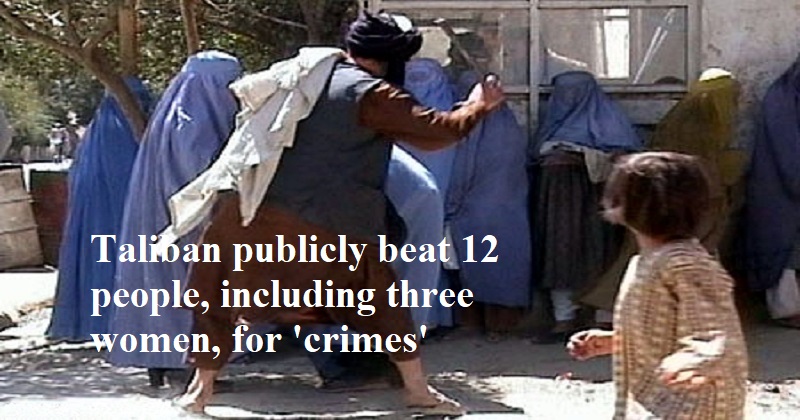
At front of hundreds of spectators in a provincial sports stadium on Wednesday, the Taliban beat nine men and three women, resuming a cruel method of punishment that was a defining feature of their reign in the 1990s. ‘ Honorable intellectuals, mujahideen, elders, tribal leaders, and local people’ were invited to the stadium in the town of Pul Alam in the Logar province, which is south of the Afghan capital of Kabul. The invitations for the 9 a.m. event were distributed via social media.
According to a governor’s office official who spoke on the condition of anonymity because he was not permitted to discuss specifics with the media, those being sentenced suffered between 21 and 39 lashes apiece after being found guilty of theft and adultery in a local court. A limit on taking pictures and videos was implemented, the official claimed, and hundreds of people attended the lashings. Resuming the practise demonstrated the Taliban’s commitment to upholding their rigid interpretation of Sharia, or Islamic law.
In a subsequent statement on the beatings, Enayatullah Shuja, the deputy governor of Logar, declared that ‘Sharia law is the sole answer for issues in Afghanistan and must be applied’. These public beatings, along with public executions and stonings for alleged offences, were widespread during the initial Taliban administration, which lasted from 1996 until the militants were forced out in an invasion spearheaded by the United States, in 2001. In August 2021, following a 20-year struggle, the Taliban seized control once more, along with the departure of American and other international soldiers.
The Taliban pledged to be more moderate and recognise the rights of minorities and women immediately following their second invasion of the nation. Instead, they have curtailed rights and liberties, including a prohibition on girls’ further education. On November 11, 19 men and women were each given 39 lashes for suspected stealing, adultery, and running away from home in the first confirmed public flogging since the Taliban seized over the country last year. Amidst a recession and the lack of formal recognition from the international community, the former rebels have struggled to make the transition from fighting to ruling.

Post Your Comments